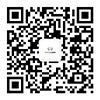Step 2, submit procurement contracts, box orders, invoices, import licenses, and initiate commission in a single window;
Step 3, customize the customs order. Pay attention to the currency and amount, and need to ensure that the contract is matched with the actual payment;
Step 4, verify the simulation tax form (import tariff+VAT). Pay attention to the price of imported latitude and weft instruments to avoid the problem of excessive tariffs or insufficient taxes;
Step 5, pay import tariffs and value -added taxes to the Chinese customs, you can pay directly through a single window, or you can pay the tax through Worth Cargo;
Step 6, the customs check or imported goods inspection, the inspection is divided into three types, port inspection, territorial inspection, and dynamic health inspection;
If there is no problem with the inspection, the customs is released.
Note that the Jingwei instrument needs to abide by the regulatory requirements of the country and bear the corresponding risks. The use of the latitude instrument needs to meet the safety standards stipulated by the state and go through safety testing and verification. If the latitude and weft instrument does not meet the relevant standards, it will be returned or confiscated.
What are the costs of the import customs declaration of Jingwei instrument?
(1) Customs declaration costs generally include customs declaration costs, documents costs and tariffs.
(2) Inspection and quarantine costs generally include inspection fees and quarantine fees.
(3) Transportation expenses include shipping, air freight, land freight, and port miscellaneous fees.


